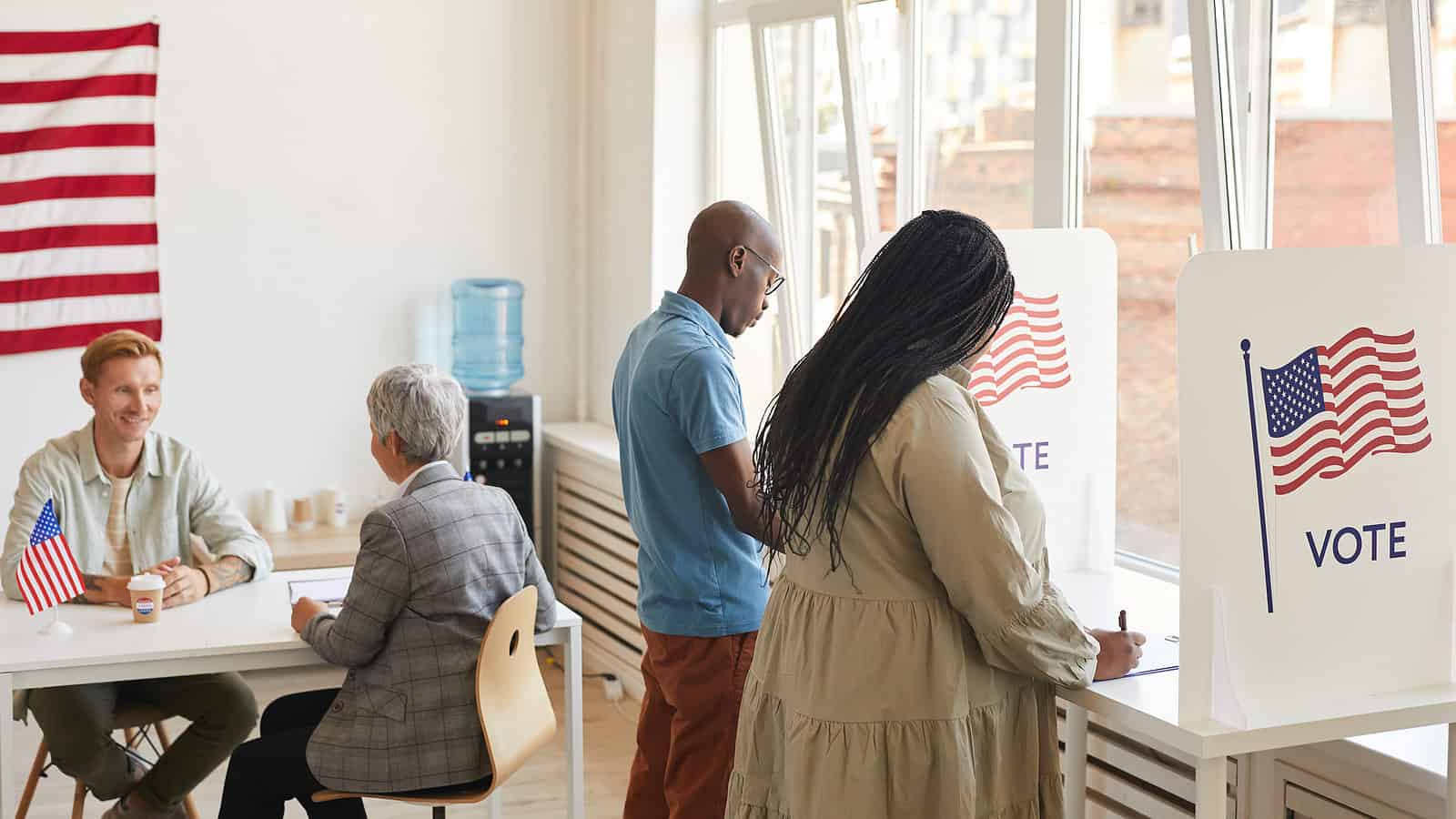
What do liquor stores, driver’s licenses, dental insurance, and millionaires have in common? They’re all on the Massachusetts ballot this year.
When Massachusetts voters go to the polls on Election Day, vote early, or complete mail-in ballots, they are not just voting for a new Governor, local leaders, and other public officials. Voters will also consider four questions with statewide impacts.
Question 1 has to do with amending the Massachusetts Constitution to add an additional 4% income tax on the portion of annual taxable income over one million dollars with revenue dedicated towards education and transportation.
Supporters of the ballot question say that it is important for the top 1% in Massachusetts to pay their fair share, and in the wake of the COVID-19 pandemic, the revenue from this tax rate will be essential to supporting education and transportation infrastructure.
Opponents of the question argue that it will hurt businesses and state economic competitiveness, and gives the Legislature too much flexibility in appropriating the new tax revenue in how it is written.
QUESTION 1: Voting YES would approve adding this income tax. Voting NO would not make any changes to the Commonwealth’s constitution regarding the income tax.
Massachusetts is among the ten states with a flat income tax rate, meaning taxpayers pay the same rate on their taxable income, regardless of how much they make. In Massachusetts, that rate is 5% for those who earn $8,000 or more per year. Thirty-three states already have a graduated income tax, meaning those who earn more pay more in personal income taxes. Question 1 would keep the income tax rate at 5% and add an additional 4% income tax only on portions of income over $1 million.
But, why a constitutional amendment? The Massachusetts income tax rate is established in the state’s Constitution, so any changes need to be passed by Constitutional Amendment. If the issue looks familiar it may be because constitutional amendments must pass in two consecutives legislative sessions before going to the voters for approval, meaning this ballot question has been a legislative priority for several years.
Millions have been spent to support and oppose the Millionaire’s Tax. Committees in support of the question have raised a reported $24.9 million and those opposed have raised $13.7 million, according to the state’s campaign finance database.
Those in support and opposition to Question 2 on the ballot have also raised millions. The question considers the regulation of dental insurance rates by the Massachusetts Division of Insurance, requiring dental insurance companies to spend at least 83% of premiums on patient care rather than administrative expenses.
QUESTION 2: Voting YES would approve the proposed regulation of the dental industry. Voting NO would make no changes to dental insurance regulation.
Those in support of Question 2 argue that dental insurance should be regulated in the same way as medical insurance, prioritizing premium spending on patient care. Those opposed to question 2 argue that dental insurance operates much differently than medical insurance and the question, as worded, would lead to increased premium costs for patients.
Question 3 has largely flown under the radar. The question considers increasing the number of licenses a single retailer can hold for off-premises alcohol consumption, effectively allowing more retailers, like liquor stores, package stores, convenience stores, and grocery stores, to sell alcohol. The question also considers prohibiting self-checkout kiosks for alcohol sales and changing the fine structure for retailers who are not in compliance.
QUESTION 3: Voting YES would increase the number of liquor licenses available for retailers, like grocery and package stores, prohibit self-checkout for alcohol sales, and restructure fines for out-of-compliance retailers. Voting NO would make no changes to current law.
Those opposed to the ballot question point out that passing Question 3 could hurt mom-and-pop stores and support larger retailers. Meanwhile, those supporting Question 3 suggest the updated fine structure and prohibition on self-checkout improves public safety.
If Question 3 passes, the out-of-compliance fine structure for retailers would change from being based solely on alcohol sales to all retail sales. Opponents point out that this proposed structure disproportionately impacts grocery stores and other retailers whose alcohol sales are a small portion of overall revenue, and that the current fine structure based on just alcohol sales is fairer.
Question 4 on the Massachusetts ballot is a referendum petition aimed at repealing a newly passed Massachusetts law allowing all residents, regardless of their proof of lawful presence in the United States, to obtain a driver’s license. While the law itself is straightforward, the wording of the question has confused voters.
QUESTION 4: Voting YES would make no changes to current law. Voting NO would repeal the current law allowing eligible Massachusetts residents to obtain a driver’s license.
The law, known as the Work and Family Mobility Act, passed the Massachusetts Legislature in June of this year after the Legislature voted to override the Governor’s veto. Massachusetts is the 17th state to allow undocumented immigrants to apply for a driver’s license. Other states with similar laws, including neighboring Connecticut who passed their law in 2015, have noticed a decline in hit-and-run crashes.
“Fair and Secure Massachusetts,” who put forward Question 4 to repeal the law, argue that the Registry of Motor Vehicles is incapable of verifying documents from other countries. Supporters point out that the RMV already evaluates driver’s license transfers from other countries.
Make a plan to vote! View your sample ballot online before going to the polls. There may be local ballot questions in addition to the four statewide questions. A summary of each statewide ballot question, including arguments in support and opposition to the question, can be found on the Massachusetts Secretary of State’s website.
Voting resources:
- Election Day: Tuesday, November 8. Polls are open 7:00am to 8:00pm on Election Day. Find your polling place.
- Early voting is from Saturday, October 22 through Friday, November 4. Find where to vote early.
- Register to vote or update your voting address by Saturday, October 29 in order to vote in the General Election on November 8.
- Check if you’re already registered to vote.
About
Maggie Randall
Manager of Public Policy and Advocacy
As Manager of Public Policy and Advocacy, Maggie focuses on advancing local, state, and federal policies to support and grow the life sciences industry in Massachusetts. Maggie works with representatives from MassBio member companies to lead and facilitate policy working groups and position-specific roundtables.
Prior to joining MassBio in 2021, Maggie spent several years in the Massachusetts Senate, recently serving as Chief of Staff and working on legislation related to transportation, housing, and criminal justice reform. Previously, Maggie worked in Massachusetts Senate President’s Office.
Maggie holds a Master of Art in Applied Politics and a Bachelor of Science in Law and Public Policy from Suffolk University. Maggie’s graduate thesis examined voter turnout and voter accessibility through state and federal policies.
